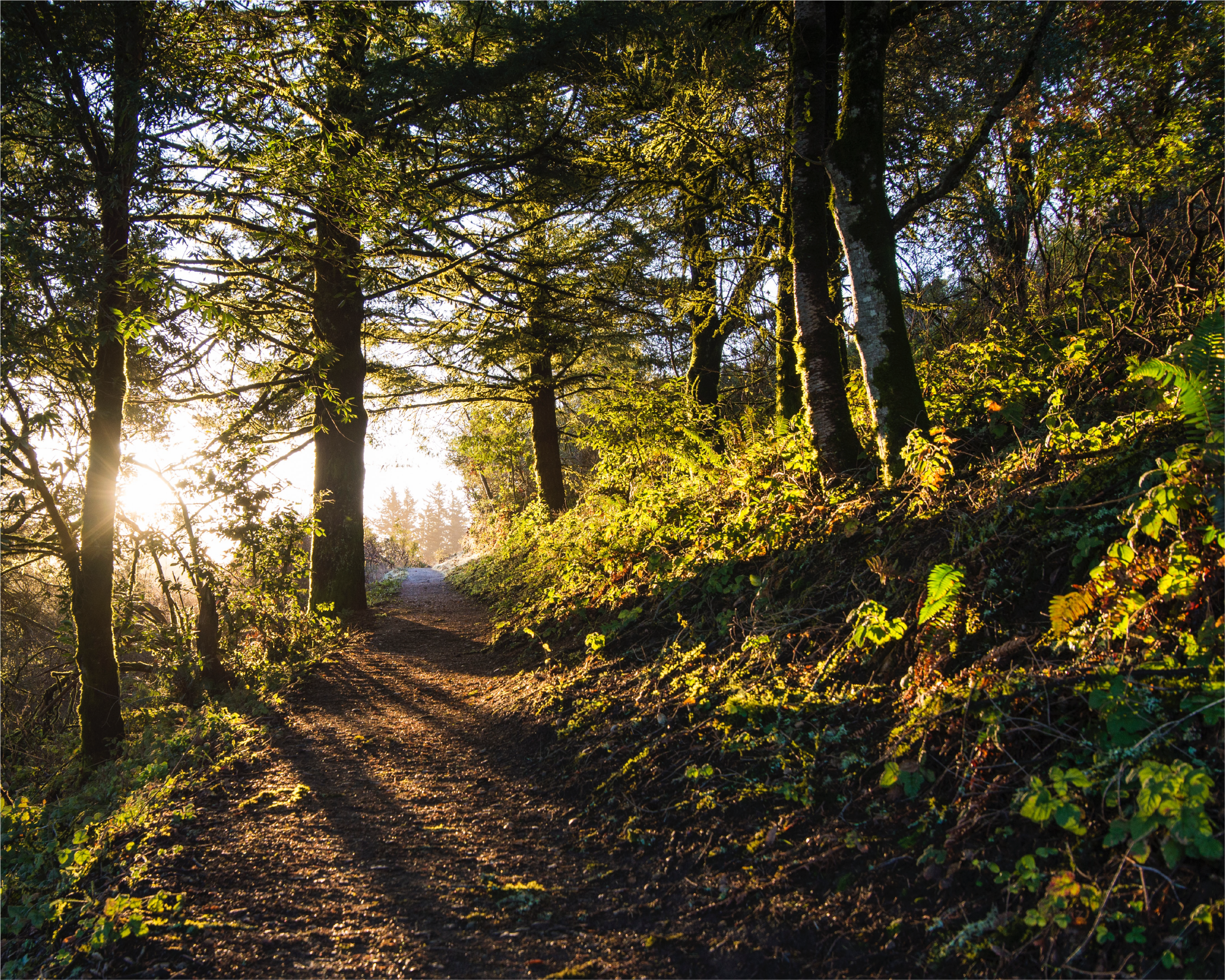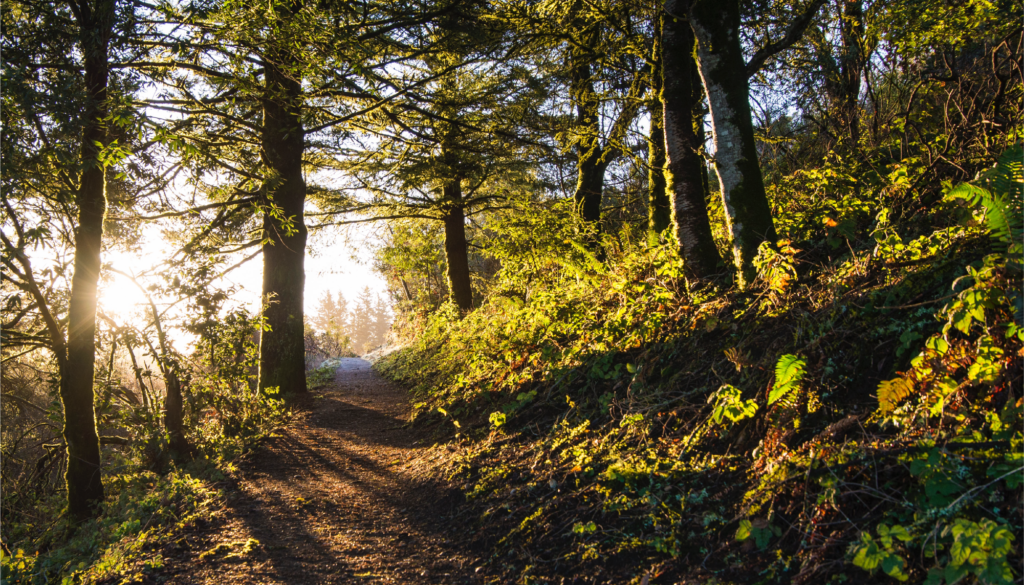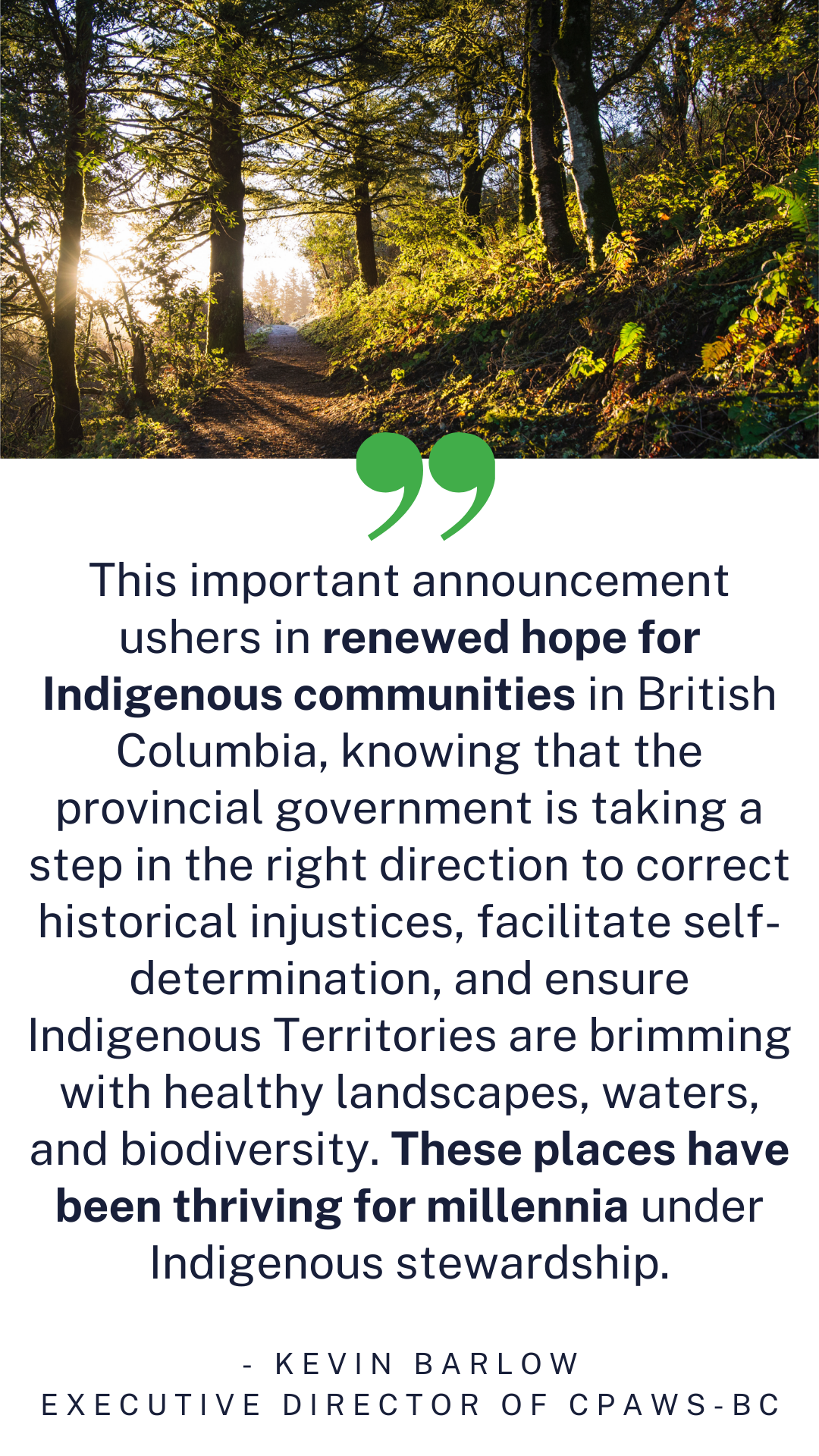CPAWS-BC: BC Government’s Historic Action Plan Signals Path for More Indigenous Reconciliation, Two Years Since Adoption of Indigenous Rights Act

CPAWS-BC: BC Government’s Historic Action Plan Signals Path for More Indigenous Reconciliation, Two Years Since Adoption of Indigenous Rights Act
April 12, 2022,
Xʷməθkʷəy̓əm (Musqueam), Sḵwx̱wú7mesh (Squamish) and səlilwətaɬ (Tsleil-Waututh) Territories / Vancouver, BC — The Canadian Parks and Wilderness Society – British Columbia (CPAWS-BC) celebrates the BC government’s announcement to implement the Declaration Act Action Plan to fulfil the UN Declaration on the Rights of Indigenous Peoples (UNDRIP) commitments.
This historic announcement further bolsters the provincial governments’ efforts in reconciling with Indigenous Peoples in BC. Premier John Horgan took an empowering step in November 2019 by adopting the Declaration on the Rights of Indigenous Peoples Act (DRIPA) into law, making BC the first Canadian jurisdiction to implement the UN Declaration through legislation.
The plan outlines 89 measurable actions every ministry in the BC government will undertake to create a more inclusive province for all Indigenous Peoples in British Columbia. Indigenous leadership and meaningful collaboration outlined in the plan supports a bright oath for lands and water conservation. Created in consultation with First Nations, Métis, and Inuit Peoples, the plan claims to reflect the priorities and aspirations of all Indigenous Peoples living in BC.
“This important announcement ushers in renewed hope for Indigenous communities in British Columbia, knowing that the provincial government is taking a step in the right direction to correct historical injustices, facilitate self-determination, and ensure Indigenous Territories are brimming with healthy landscapes, waters, and biodiversity. These places have been thriving for millennia under Indigenous stewardship,” says Kevin Barlow, Executive Director of CPAWS-BC. “We hope that this significant step-change also looks to fast track conservation projects on the ground and in the ocean, while recognizing unilaterally-declared Indigenous Protected and Conserved Areas (IPCAs) as part of this reconciliatory action plan.”
We acknowledge that reconciliation and decolonization is an ongoing process that requires all of us to be actively involved. As we work toward the protection of diverse ecosystems, CPAWS-BC will do so in the spirit of decolonization, recognizing the essential leadership of the Indigenous stewards who have cared for these lands and waters since time immemorial. We are committed to deepening our relationships with Indigenous partners and we recognize that it is our responsibility to support Indigenous Peoples to safeguard their land and water.
As a team, we are advancing awareness, knowledge, and capacity on our staff and board by providing cultural competency learning opportunities and workshops with Indigenous speakers, Elders, storytellers, and facilitators.
For more information, contact:
Rippon Madtha
Communications Manager
604-685-7445 (x 23)
rippon@cpawsbc.org
CPAWS-BC: BC Government’s Historic Action Plan Signals Path for More Indigenous Reconciliation, Two Years Since Adoption of Indigenous Rights Act
April 12, 2022,
Xʷməθkʷəy̓əm (Musqueam), Sḵwx̱wú7mesh (Squamish) and səlilwətaɬ (Tsleil-Waututh) Territories / Vancouver, BC — The Canadian Parks and Wilderness Society – British Columbia (CPAWS-BC) celebrates the BC government’s announcement to implement the Declaration Act Action Plan to fulfil the UN Declaration on the Rights of Indigenous Peoples (UNDRIP) commitments.
This historic announcement further bolsters the provincial governments’ efforts in reconciling with Indigenous Peoples in BC. Premier John Horgan took an empowering step in November 2019 by adopting the Declaration on the Rights of Indigenous Peoples Act (DRIPA) into law, making BC the first Canadian jurisdiction to implement the UN Declaration through legislation.
The plan outlines 89 measurable actions every ministry in the BC government will undertake to create a more inclusive province for all Indigenous Peoples in British Columbia. Indigenous leadership and meaningful collaboration outlined in the plan supports a bright oath for lands and water conservation. Created in consultation with First Nations, Métis, and Inuit Peoples, the plan claims to reflect the priorities and aspirations of all Indigenous Peoples living in BC.
“This important announcement ushers in renewed hope for Indigenous communities in British Columbia, knowing that the provincial government is taking a step in the right direction to correct historical injustices, facilitate self-determination, and ensure Indigenous Territories are brimming with healthy landscapes, waters, and biodiversity. These places have been thriving for millennia under Indigenous stewardship,” says Kevin Barlow, Executive Director of CPAWS-BC. “We hope that this significant step-change also looks to fast track conservation projects on the ground and in the ocean, while recognizing unilaterally-declared Indigenous Protected and Conserved Areas (IPCAs) as part of this reconciliatory action plan.”
We acknowledge that reconciliation and decolonization is an ongoing process that requires all of us to be actively involved. As we work toward the protection of diverse ecosystems, CPAWS-BC will do so in the spirit of decolonization, recognizing the essential leadership of the Indigenous stewards who have cared for these lands and waters since time immemorial. We are committed to deepening our relationships with Indigenous partners and we recognize that it is our responsibility to support Indigenous Peoples to safeguard their land and water.
As a team, we are advancing awareness, knowledge, and capacity on our staff and board by providing cultural competency learning opportunities and workshops with Indigenous speakers, Elders, storytellers, and facilitators.
For more information, contact:
Rippon Madtha
Communications Manager
604-685-7445 (x 23)
rippon@cpawsbc.org



